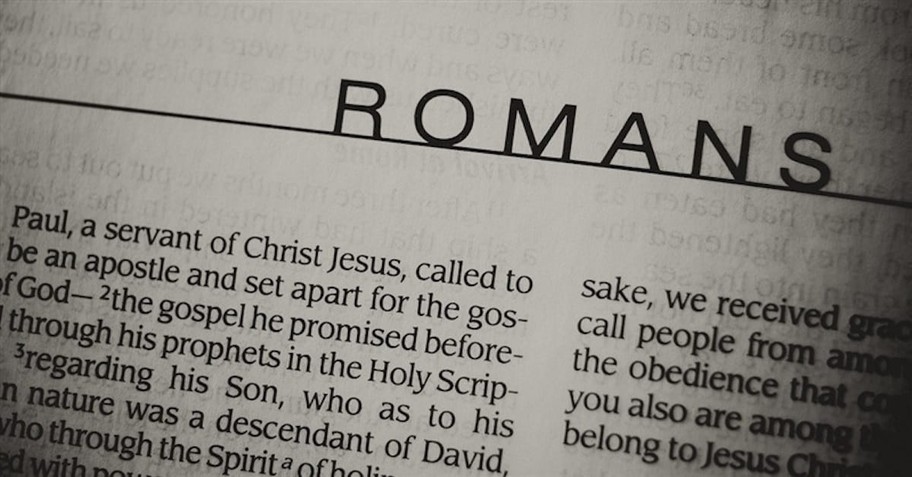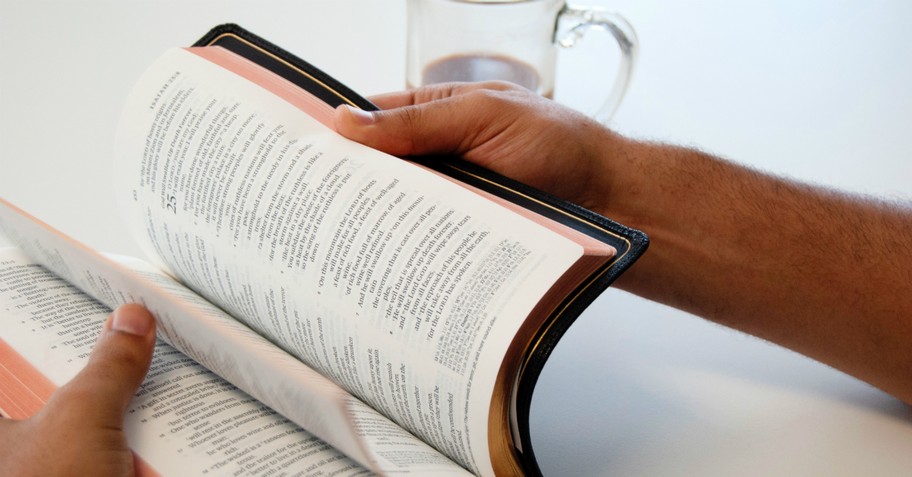Why Do I Do What I Hate? (Romans 7:15)

In his letter to the Roman church, the apostle Paul wrote, “for what I am doing, I do not understand; for I am not practicing what I would like to do, but I am doing the very thing I hate… For the good that I want, I do not do, but I practice the very evil that I do not want. But if I am doing the very thing I do not want, I am no longer the one doing it, but sin which dwells in me.” (Romans 7:15, Romans 7:19-20)
Sound familiar?
Like Paul, many Christians find themselves in a similar spiritual battle. We want to do what is right but struggle to overcome our rebellious, sinful nature. We fail, we falter, we do the very things we hate and know are wrong, and when we mess up, we can often grow weary, disheartened and even overwhelmed.
We ask ourselves:
Why is following in the footsteps of Jesus so hard?
Why do we do the things we know are wrong?
Why do we continue to sin when we’re supposed to be redeemed, new creations in Christ Jesus?
Paul attempted to address these many questions, describing the battle between sin and righteousness and the all-important, life-changing power of God’s grace.
Photo Credit: ©GettyImagesAaronAmat

What Does ‘What I Want to Do I Do Not Do, but What I Hate I Do’ Mean?
Amazingly, even a Christian as mature as Paul understood that just because we love the Lord and delight in His ways (Isaiah 58:2), it does not mean that we are perfect or will always obey Him. Paul went so far as to call himself the “chief of sinners” (1 Timothy 1:15) and a “wretched man” (Romans 7:24), recognizing that, though God’s way is spiritual, he was not (Romans 7:14).
Even redeemed, Christians make mistakes because we are at constant war with our old, sinful nature, which is fighting to reclaim its place of influence in our lives. When we sin, our sinful nature climbs back into the driver’s seat, steering us away from God.
This is why Paul wrote, “if I do the very thing I do not want to do, I agree with the Law, confessing that the Law is good. So now, no longer am I the one doing it, but sin which dwells in me.” (Romans 7:16-17)
And how do we know we have sinned and are being steered away from God? God’s word, the Bible, which Paul refers to as the law of God (Romans 7:22).
The law of God is what exposes sin and shows us where we have fallen short of the glory of God (Romans 3:23). Unfortunately, when we examine our lives by this law, we see just how warped, cracked, and imperfect we still are (Romans 3:23). And next to the law, no one is righteous, not even one (Romans 3:9-11).
This is why, in Romans 7, Paul places such prominence on the doctrine of grace.
Under grace, Paul argued, believers are free from the law’s condemnation. This doesn’t mean that the law is useless or obsolete, or that Christians have the freedom to keep sinning and doing whatever they want (Galatians 5:13).
As Matthew Henry writes in his commentary, “the law may discover sin, and convince of sin, but it cannot conquer and subdue sin.” Forgiveness, redemption, and the power to actually overcome sin in one’s life can only come through the power and forgiveness of Jesus Christ, which is freely offered to those who come to Christ through faith (Hebrews 9:14).
As a man who desired holiness, Paul hated his many sins because he longed to be more like Christ. His sin was a reminder that no amount of spiritual knowledge, willpower, or hard work can save a person.
Only God can transform and redeem a stubborn, rebellious heart, and only Christ can conquer sin in one’s life. “Who will set me free from the body of this death?” Paul asked, “Thanks be to God through Jesus Christ our Lord!” (Romans 7:24-25)
Saved once and for all (Hebrews 10:10), we are being transformed into the perfect, holy image of Christ over time.
Photo Credit: ©Unsplash/Elijah O'Donnell

What is the Context of Romans 7:15?
Throughout his ministry, the apostle Paul had heard amazing things about the church in Rome and longed to visit the Christians living there (Acts 19:21). As the capital of the Roman Empire, and one of the greatest cities in the world, Rome also held strategic value as a staging point for future missionary journeys to that region and even beyond.
However, during Paul’s later journeys, the Holy Spirit prevented Paul from traveling to Rome (Romans 1:13-15), directing him to the churches in Jerusalem, Asia Minor, and Greece instead (Romans 15:22-24).
God, of course, had a plan for Rome and a plan for Paul’s eventual visit. Paul just had to trust in God’s timing and follow the Holy Spirit’s direction, even when it told him to be patient.
Once this seed had been planted, however, Paul’s heart for the Romans grew every day. Therefore, around 57 A.D., towards the end of his third missionary journey (Acts 18:23- 21:14) while he was still living in Greece (Acts 20:3:6), Paul drafted a letter to the church in Rome, preparing them for his long-awaited arrival.
Unlike many of his epistles, Paul’s letter to the Romans didn’t address specific problems or behavioral concerns in the church. Rather, Paul sought to encourage the Christians in Rome with a straightforward explanation of the fundamental truths of the Gospel with an emphasis on grace and sanctification.
Photo Credit: ©GettyImages

What Do Different Bible Translations Say in Romans 7:15?
We know that the law is spiritual; but I am unspiritual, sold as a slave to sin. I do not understand what I do. For what I want to do I do not do, but what I hate I do. (Romans 7:14-15, NIV)
For we know that the Law is spiritual, but I am of flesh, sold into bondage to sin. For what I am doing, I do not understand; for I am not practicing what I would like to do, but I am doing the very thing I hate. (Romans 7:14-15, NASB)
For we know that the law is spiritual: but I am carnal, sold under sin. For that which I do I allow not; for what I would, that do I not; but what I hate, that do I. (Romans 7:14-15, KJV)
I can anticipate the response that is coming: ‘I know that all God’s commands are spiritual, but I am not. Isn’t this also your experience?’ Yes, I’m full of myself – after all, I’ve spent a long time in sin’s prison. What I don’t understand about myself is that I decide one way, but then act another, doing things I absolutely despise. So if I can’t be trusted to figure out what is best for myself and then do it, it becomes obvious that God’s command is necessary. (Romans 7:14-16, The Message)
So the trouble is not with the law, for it is spiritual and good. The trouble is with me, for I am all too human, a slave to sin. I don’t really understand myself, for I want to do what is right, but I don’t do it. Instead I do what I hate. (Romans 7:14-15, NLT)
Photo Credit: ©GettyImages/monkeybusinessimages

Other Verses Related to the ‘Do What I Hate’ Concept of Romans 7:15
As we journey through the entire Bible, you will see this concept of humans, although made in God’s image, struggling to do what’s right, on our own.
In the Old Testament, we read that some will hear the word of God and still fall (Numbers 24:1-4).
In John 3, we learn through Nicodemus that we must be born again of the Spirit, and again in John 8:31-38, Jesus speaks of spiritual slavery and freedom in Christ.
Romans 12:2-3 teaches us that we are transformed by the renewing of our mind, and in 2 Corinthians 3:18 we are reminded that we are being transformed into the likeness of Christ, and that indeed we are new creations in Christ Jesus (2 Corinthians 5:17).
Galatians 5:16-24 urges us to walk in the Spirit, and Ephesians 2:8-10 shows us that we are God’s workmanship. Further, Ephesians 6:12 points out that our battle is in the Spirit.
A continuing theme in the Epistles is that we are works in progress, pressing on towards the ultimate goal (Philippians 3:12-14).
In these letters, we learn we are justified by grace (Titus 3:3-7), that we can approach Christ with boldness (Hebrews 10:19-25), and that we must be both hearers and doers of the Word (James 1:22-25).
Photo Credit: ©Sparrowstock

How Can I Apply Romans 7:15 Today?
As Christians, our old, sinful nature likes to rear its ugly head and drag us down, hold us back, or keep us from the righteousness of God. We will sin, make mistakes, fall down, sink, turn back, and otherwise surrender to our sinful nature because we are still works in progress (Ephesians 2:8-10), being changed, transformed, and fashioned into the likeness of Jesus Christ each and every day (2 Corinthians 3:18).
Like Paul, we will often hate the things we do and regret the mistakes we make because we long to live lives that are holy and pleasing to God. This longing reveals that the word of the God and Holy Spirit are alive and active, steering us towards God.
The beauty of God’s and grace, however, is that we are no longer judged or condemned for each and every sin or shortcoming. We are no longer slaves to sin but new creations (2 Corinthians 5:17). And though our salvation comes through Christ’s death and resurrection, the process of becoming more like Him, is ongoing.
So just remember, on your worst day, God’s grace is sufficient for you. Your greatest victory has already been won. Today, God is at work in your life, slowly but purposefully making you more like Him. So be patient in His perfect process, and trust in His perfect timing. His best for you is done, being done, and is still to come.
Photo Credit: ©GettyImages/RomoloTavani

A Prayer for Doing What’s Best for You, Instead of What You Hate
God, grant me the serenity to accept the things I cannot change, the courage to change the things I can, and the wisdom to know the difference. Living one day at a time, enjoying one moment at a time; accepting hardship as a pathway to peace; taking, as Jesus did, this sinful world as it is, not as I would have it; trusting that You will make all things right if I surrender to Your will; so that I may be reasonably happy in this life and supremely happy with You forever in the next.
– The Serenity Prayer, by Reinhold Neibuhr
Photo Credit: ©GettyImages/Palidachan
Originally published February 25, 2020.









